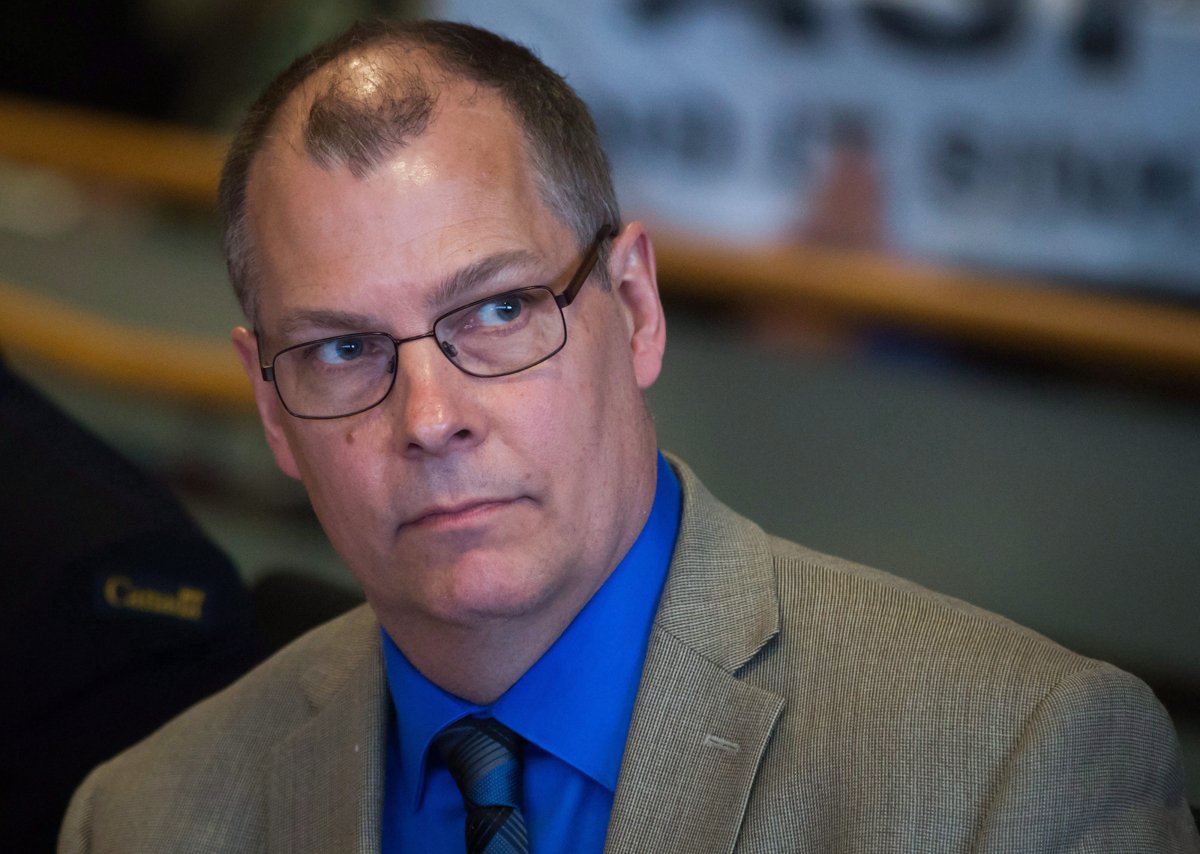The head of the National Energy Board says a proposed overhaul of how the federal regulator consults, operates and is organized will make it better prepared to respond to modern expectations.
Speaking at the sidelines of an industry safety workshop Wednesday, NEB chairman Peter Watson says recommendations last month by a modernization panel could fix some of the limitations of the regulator and help it keep up with the times.
"Some of the things at the root of our challenges are embedded in our enabling legislation, so I actually think that whatever comes out of these reviews, it's kind of time to refresh for the 21st century," said Watson.
"We know expectations have changed on us and we need to keep pace with where things are going."
He says changes to rules on governance, public participation and the role of indigenous peoples will help the NEB respond better to concerns of the public.
The federal regulator's own plans for more reporting on how it's performing and driving safety culture in the industry will also help the public keep the NEB accountable, said Watson.
"People should understand how we're performing and then use that information to assess whether they think we're good enough or not."
Watson says he's not concerned by the suggestions the panel put forth. These include splitting off data production into a separate organization, a one-year federal review of projects to determine if they're in the public interest before a detailed review by the regulator, and no longer requiring board members to live in Calgary.
The panel made the recommendations after finding that the regulator had fundamentally lost the confidence of many Canadians.
Watson added that while waiting for the government overhaul, the NEB is also taking its own initiative to improve pipeline safety and regulations — including a two-day workshop being held in Calgary to discuss how to improve manufacturing standards for pipeline parts.
"Even while the modernization review is going on, we're making significant steps on how we drive safety culture into the oil and gas industry, and into the companies we regulate," he said.
The NEB organized the workshop after the regulator and pipeline companies found flaws in parts being supplied by several global manufacturers.
Since the Canadian regulator has no direct control over the manufacturing process, it has brought together academics, manufacturers, international regulators and others to identify the issues and find solutions, including better standards.
On Wednesday, the Canadian Energy Pipeline Association also released its annual report that showed members leaked 38 barrels, or 6,042 litres, of crude oil in three minor incidents, with no incidents classified as significant for the second year in a row.





Comments
"Some of the things at the root of our challenges are embedded in our enabling legislation, so I actually think that whatever comes out of these reviews, it's kind of time to refresh for the 21st century," said Watson.
"We know expectations have changed on us and we need to keep pace with where things are going."
As long as the legislation "enables" Right of Entry, land theft, uncompensated 30 metre control/safety zones around pipelines, and abandonment of pipelines in the ground, there is no "keeping up with the times" , or any vestige of "modernization".
Watson is disdainful to the public and to landowners. He should step aside to afford an objective commentary on the panel's recommendations, as subjective as they are when drawn from a panel loaded with industry cronies.
On March 1st Trans Mountain applied to the NEB for a variance of its plans for the Burnaby Mountain storage facility. It is almost 4 months later and they have just announced it at
https://blog.transmountain.com/mitigating-risk-changes-to-burnaby-termi…
The application is here:
https://docs2.neb-one.gc.ca/ll-eng/llisapi.dll?func=ll&objId=3200605&ob…
The 4 month delay suggests that the chair of the NEB has not learnt anything, despite what he says.
I also want to know why he has accepted as a board member someone who has been convicted of insider trading. This is inconsistent with the published requirements for a board member.
I wouldn't call the Saskatchewan river oil spill last July "insignificant". The Husky Energy oil pipeline leak was evaluated at 225,000 litres (1,416 barrels) of crude oil, 40% entering the river. On March 23, 2016, there was another spill by the same pipeline company of around 25,000 litres in southwestern Alberta.
A month earlier, ConocoPhillips Canada and Paramount Resources reported a leak of 380,000 litres of light petroleum within five kilometres of a grizzly bear management zone in northwestern Alberta.
In January 21017, Tundra Energy Pipeline reported a spill of around 200,000 litres of crude oil near Stockton, Saskatchewan.
People at the Canadian Energy Pipeline Association should watch the news or read the newspapers, because it seems that it can count on its members to provide reliable information.
Pipeline operators can't detect leaks that are under 2% of the volume carried. Since Canada produce more than 4.6 million barrels of crude oil per day and export most of its production (around 3.5 million barrels per day) using pipelines, these unreported leaks amount to approximately 25.5 million barrels per year of crude oil spilled in the environment.